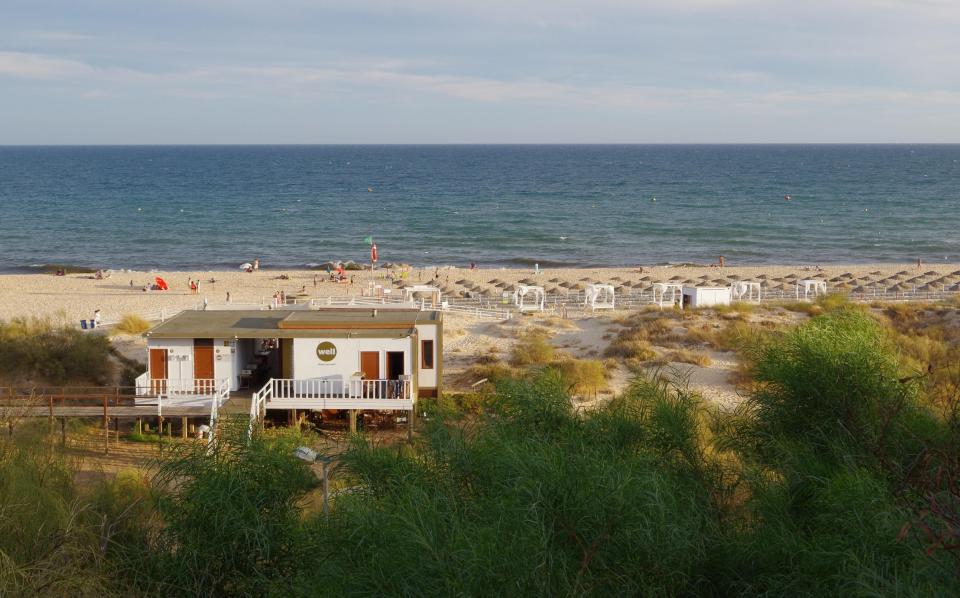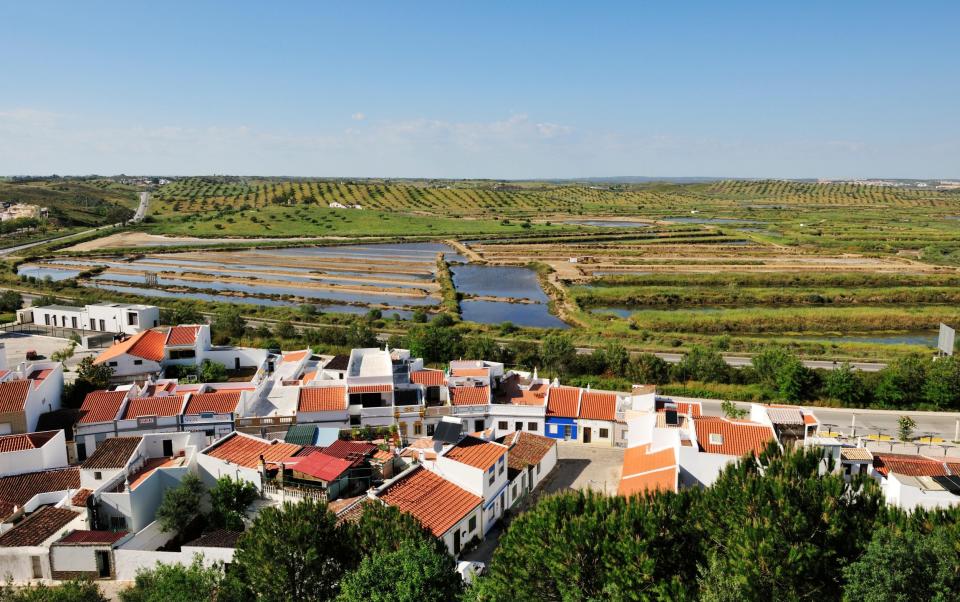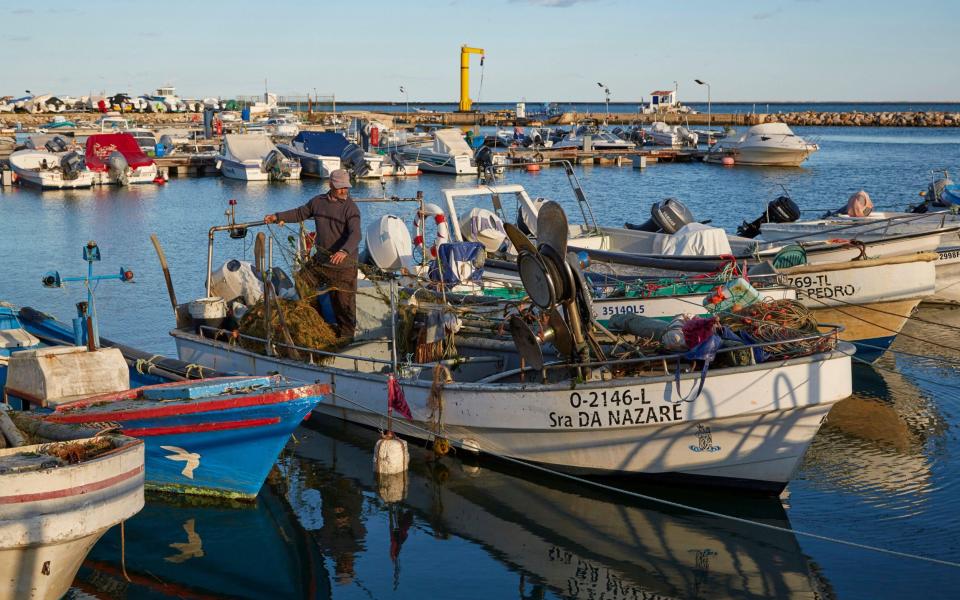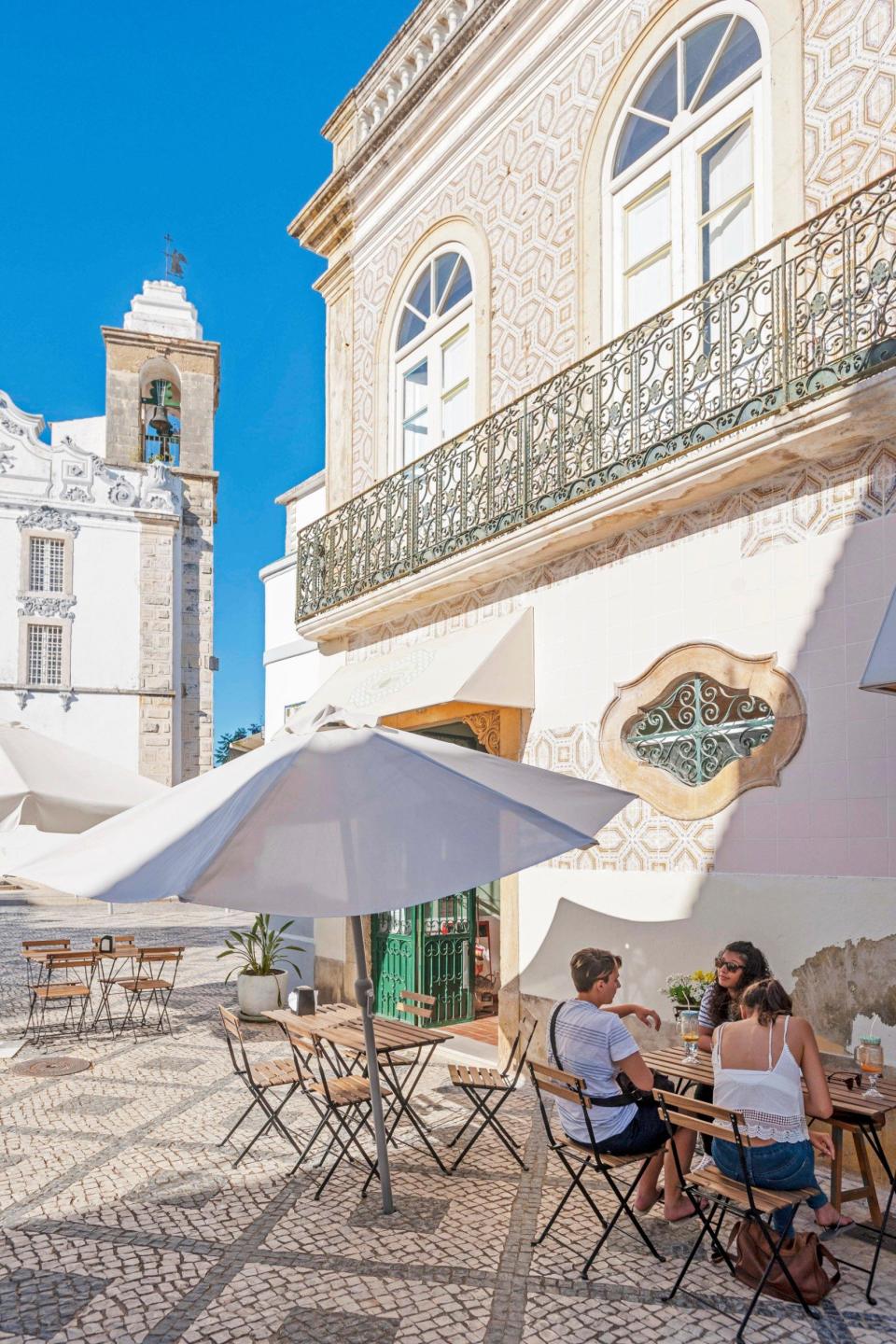“Some people are lucky,” was the sad slogan of my grandfather, Cyril. He pulled on his pipe and then left it for emphasis.
Actually, he and my grandmother were quite lucky. They had the adventurous spirit and hard-earned resources to travel to the Portuguese Algarve relatively often – in the 1960s and 1970s, when it was still considered quite recherché. My grandparents grew to love Portugal so much that they started taking night classes to learn the language and considered moving there. My grandfather even read Papillon in Portuguese.


I also loved their travels – not least because they produced some of my most beloved childhood gifts, like the silk smocked dress with ivory embroidery that I wore until it was ultra mini (even by the standards of the sixties), and the colorful wicker dress basket, complete with pompoms, bells and mirrors, that I took everywhere with me.
But it was sitting next to them on the couch after each return and looking at the slightly blurry photos of orange groves and fishing boats landing on almost deserted beaches lined with palm trees, which I remember most fondly. It was all so incredibly exotic to me.


For years I wondered if this place still existed – if it was still possible to find the quiet, authentic Algarve of half a century ago, where the serenity of an old Portuguese way of life still flourished. And so – in search of solace and a holiday that connected me to my family – I decided to search.
I flew into Faro, the British tourist’s old entry point to the Algarve, then headed 40 minutes east along the coast to Monte Gordo Bay. There I checked in at Praia Verde, which – entirely Portuguese-owned and run in a family style – was suitably sympathetic to my quest.
Witnessing this, my visit coincided with the first of a series of ‘Como em Casa’ (‘just like home’) culinary events at the hotel, featuring three locally renowned chefs from the nearby village of Castro Marim (which, charmingly, translates as “ castle by the sea”). From the medieval castle, which towers over this village of whitewashed houses, you have views of the River Guadiana – the border with Spain – the glittering salt pans and beyond.


The guest chefs included a postman, an impeccable market stall owner and two women who ran a church cafe. It seemed that most of Castro Marim had also come to the event, dressed in their Sunday best and shouting with cheers of support – loudest for the postman, as he layered tomato, pepper, king prawns, tuna and potatoes . traditional hammered copper cataplana dish.
My grandparents often visited the Castro Marim salt pans during their visits – vast plains that produce some of the purest salt crystals in the world and were harvested by the Romans to pay wages (hence the word salary). The pans still produce sea salt, but a newer attraction is the saltwater lagoon that has been converted into an outdoor spa pool, where you can float on the water all summer long. That would have really appealed to my grandparents, who also spent many summers at the Dead Sea.
The next day, the hotel’s chef David Domingues showed me around the Castro Marim food market, paying special attention to the fish stall. I was fascinated by the incredible array of glistening, determined local varieties that I had never seen before, including anchovies the size of a sea bass (cooked on the barbecue for lunch), prawns of all sizes and shades of pink, and huge mounds of shiny mussels . I beamed: it was just such a Portuguese market that inspired Grandad to open the fishmonger he ran for years in London’s Tulse Hill, where he bought at Billingsgate Market with my elegant, petite grandmother, who shared the sidecar home with his load of fish.


I then headed to Olhão, a working fishing village just outside Faro, criss-crossed by cobbled streets and extraordinary 18th-century cubist houses with open roof terraces and minaret-inspired chimneys. Olhão’s great moment came in 1808, when the fishing vessel Bom Sucesso left here for Rio de Janeiro and the crew was ordered to inform the exiled Portuguese king João VI that Napoleon had withdrawn. As a reward, the city was granted a royal charter and developed as a fishing port and canning center.
Today, small terraced restaurants line the waterfront promenade and surround the two red-brick buildings of the Mercado with its striking turrets. On Saturday mornings, the Algarve’s largest fish market is packed with freshly caught tuna, sea bass and anchovies, as farmers tend the stalls piled high with their proud, wobbly produce.
I strolled through the rows of the market for hours and then settled on the terrace of Terra i Mar with lunch and a large pitcher of sangria. The taste immediately delighted me – inspired by similar lazy afternoons on the terraces of local restaurants, my grandmother had often made sangria for us at home, in a beautiful cut glass jug with lots of fruit – a treat for my brother and me as teenagers, then we chewed down every slice of booze-soaked fruit. Around me I heard almost nothing other than Portuguese from my fellow diners. No wonder my grandparents had felt the need to learn the language.


After lunch I checked into Praia Verde’s sister hotel, Vila Monte – secluded among pine-clad hills, peppered with almond and carob trees – where the staff recommended I visit the Ria Formosa Natural Park, an area of plains, salt marshes and scrubland, covered in sea plants and flowers, and a haven for birds.
The park wasn’t built until 1978, but my grandparents would have loved it – avid gardeners as they both were, who always had a well-stocked bird table and spent hours watching the feathered species that visited the park. I remember as a child drawing a bird calendar for my grandmother with a different colorful species for each month, and I was touched to discover that she still had it stored away many years later.
My guide through the park was Jose, a retired food technology expert with a passion for nature. For almost three hours we walked, stopped and peered, completely absorbed, recording an incredible array of sightings, from whimbrels and little egrets to spoonbills and pink flamingos.
It was a peaceful, wild and conscious end to my journey. Standing amid the shimmering waters of the marshland, I felt a sudden rush of affection for this unspoilt, friendly corner of Portugal, just as my grandparents had, and for the deep-rooted bond I felt with them there. The local leitmotif – as I was told by a gentleman in a flat cap in Olhão – is wise. “In the eastern Algarve,” he had said, staring at the sunset from his table outside the Gelato Davvero, “we take our time.” It was a relief to discover that this saying is still as true today as it ever was.
Essentials
Sudi Pigott was a guest at Octant Hotels.
Praia Verde (00351 281 530 600; octanthotels.com) has double prices from £110 per night; Vila Monte (00351 289 790 790; octanthotels.com) has double prices from £151 per night.
Ryanair (ryanair.com), easyJet (easyjet.com) and British Airways (ba.com) all fly direct to Faro from regional UK airports, with returns from £25.